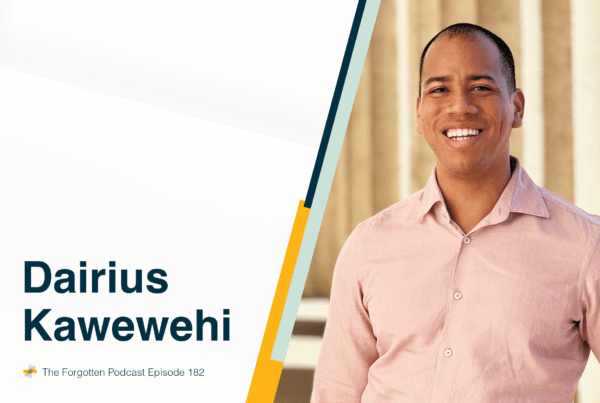
Foster care is full of confusing, and often conflicting, emotions. How do we handle those emotions? How do we prepare ourselves for hard transitions? And how do we champion reunification as often as we can? My guest today is no stranger to those feelings as both a foster parent and a case manager at an agency in Texas. In today’s conversation, Amanda Irby shares her experience fostering 10 children in a little over two years, how her perception of biological families has shifted, what a day in her life as an agency worker is like, how she’s been learning to say those hard goodbyes, and much more. I greatly appreciate her passion for this work, and for reunification specifically. Listen in!
TAKEAWAYS FROM TODAY’S CONVERSATION:
1. There are no “good guys” and “bad guys.”
It’s not uncommon for people to think of biological parents in an us-versus-them mentality. But as we get to know them better and hear their stories, we can recognize that we are all broken people. Many biological parents have experienced generational trauma, abuse, and other hard circumstances that have led them to need support. Let’s be people who are actively part of the team working to support them in healing and the pursuit of reunification.
“So many people start out with this generalization that I had where foster parents are ‘good people’ and biological parents are not. That is not true.”
2. Don’t navigate foster care alone.
Most of all, the heaviness of this journey should be given regularly over to God. He sees you and wants to navigate foster care alongside you. Additionally, it’s so important to have a community that desires to understand what you’re experiencing. Especially after a hard goodbye, who do you have to sit with you in the celebration and the struggle?
“When a kid first leaves, it’s like this empty space, and it’s hard to come to terms with them not coming back.”
3. Root for reunification.
From the moment a child comes into our home, we should be rooting for reunification. If we start the process with adoption in mind, we will struggle when the child is reunified with their biological parents and we likely will have inadvertently caused it to take longer. It’s normal to feel a confusing mix of both joy and grief when a child is reunified, but we have to have a mindset that is preparing for the hard goodbye from the beginning.
“Putting aside your own wants and your own desires to really support your kids is saying, ‘You are here. Your goal is getting back to your mom or dad, and we are going to do everything we can to do that as long as it’s an option.’”

Meet Our Guest
Amanda Irby has always been passionate about adoption and, in turn, foster care. She firmly believes that foster care was not made for the faint of heart, but each child makes it worth the challenges. Amanda started fostering two weeks before COVID-19 and has fostered 10 children so far. In addition to being a foster parent, she also works as a case manager at an agency in Texas.
Get encouragement and updates in your inbox.
Be the first to know about new episodes, posts, resources, and stay in the loop about what’s coming up.
Other Episodes You Might Enjoy:










